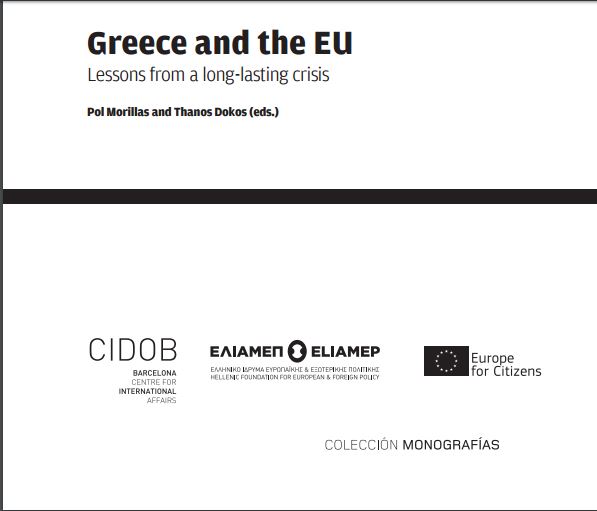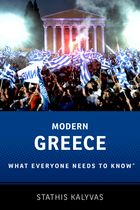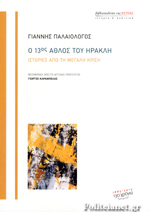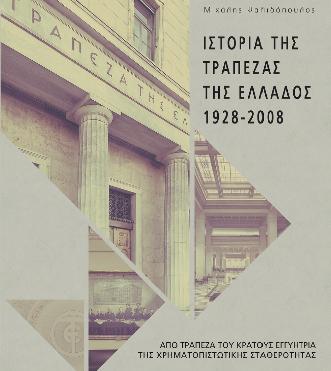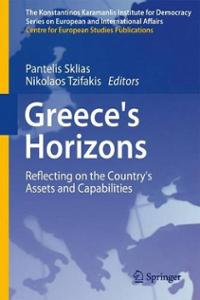Pol Morillas, Thanos Dokos, (2016), “Greece and the EU. Lessons from a Long-lasting Crisis”, CIDOB Monographs, Μάϊος Less than a year ago, the Greek crisis reached its highest level of tension. After arduous negotiations, the Greek government and its creditors signed the agreement for a third bailout in July 2015,which should provide liquidity to the Greek public sector in return for a severe programme of deficit adjustment and structural reforms. At …Read More
An ever More Polarized Union: The Greek Problem and the Failure of EU Economic Governance
Notermans, Ton, (2016), “An ever More Polarized Union: The Greek Problem and the Failure of EU Economic Governance”, CESpapers – open forum #24 As the Greek economy continues on its downward trajectory, the policy debate has degenerated into a re-enactment of the neoclassics versus Keynesians controversy. Yet, the Greek crisis can be solved neither by more austerity and structural reforms nor by Keynesian reflation. The core problem lies in a form …Read More
Greek Endgame From Austerity to Growth or Grexit
Christodoulakis, Nicos, (2015), “Greek Endgame From Austerity to Growth or Grexit”, Rowman & Littlefield publications, Οκτώβριος The book explores in depth both the origins of the Greek debt crisis and the conditions under which the economy might be turned around from its current malaise. Greek debt turned explosive after the 2008 global crisis, through a combination of a fiscal spree and domestic policy complacency, but the unpreparedness and indecision of the …Read More
Prime Ministers in Greece-The Paradox of Power
Featherstone, Kevin, Papadimitriou, Dimitris, (2015), “Prime Ministers in Greece-The Paradox of Power”, Oxford University Press, Ιούλιος This book is concerned with a large question in one small, but highly problematic case: how can a prime minister establish control and coordination across his or her government? The Greek system of government sustains a ‘paradox of power’ at its very core. The Constitution provides the prime minister with extensive and often unchecked powers. Yet, …Read More
Who’s to Blame for Greece?-Austerity in Charge of Saving a Broken Economy
Pelagidis, Theodore, Mitsopoulos, Michael, (2015), “Who’s to Blame for Greece?-Austerity in Charge of Saving a Broken Economy”, International Political Economy Series, Palgrave-Macmillan publications, Οκτώβριος The Euro constitutes the crowning achievement of a prolonged process of integration between European states. It incarnates the vision for a united and prosperous Europe: the attainment of major political goals through the promotion of closer economic cooperation. However, the 2009 crisis brought the EU head-to-head again with its …Read More
Modern Greece: What Everyone Needs to Know
Kalyvas, Stathis (2015), Modern Greece: What Everyone Needs to Know, Oxford University Press. Combines the most up-to-date economic and political-science findings on the current Greek crisis with a discussion of Greece’s history Greece’s economic and political future as a member of the European Monetary Union is very unpredictable at the moment, though the decision will have great repercussions for the rest of Europe and the world Makes original historical connections between …Read More
Ο 13ος Άθλος του Ηρακλή – Ιστορίες από τη Μεγάλη Κρίση
Παλαιολόγος Γιάννης, Ο 13ος Άθλος του Ηρακλή – Ιστορίες από τη Μεγάλη Κρίση, Αθήνα: Εκδόσεις Εστία, Νοέμβριος 2014. Πώς μια ευημερούσα, φαινομενικά προηγμένη οικονομία στον πυρήνα της Ευρώπης κατέρρευσε τόσο ραγδαία; Και γιατί έχει δυσκολευτεί τόσο πολύ να σταθεί ξανά στα πόδια της; Μέσα από μια σειρά συναρπαστικών αφηγήσεων από τις μέρες πριν και κατά τη διάρκεια της Μεγάλης Κρίσης “Ο 13ος άθλος του Ηρακλή” αναδεικνύει τα κοινωνικά, πολιτιστικά …Read More
Greece: From Exit to Recovery?
Pelagidis, Τ. & Mitsopoulos, Μ. (2014) “Greece: From Exit to Recovery?“, Brookings Institution Press, Ιούνιος Two Greek economic analysts explain the Greek financial crisis—from beginning to end. The first section of Greece: From Exit to Recovery? explores the lead up to Greece’s adoption of the euro. Authors Theodore Pelagidis and Michael Mitsopoulos believe that the ensuing challenges were foreseeable. In fact, the authors posit that it was Greece’s difficultly …Read More
Ιστορία της Τράπεζας της Ελλάδος, 1928-2008: από Τράπεζα του Κράτους, Εγγυήτρια της Χρηματοπιστωτικής Σταθερότητας
Ψαλιδόπουλος, Μ. (2014) “Ιστορία της Τράπεζας της Ελλάδος, 1928-2008: από Τράπεζα του Κράτους, Εγγυήτρια της Χρηματοπιστωτικής Σταθερότητας“, Τράπεζα της Ελλάδος, Κέντρο Πολιτισμού Έρευνας και Τεκμηρίωσης, Ιούνιος. Πρόλογος του Διοικητή Η Τράπεζα της Ελλάδος συμπληρώνει εφέτος 86 χρόνια λειτουργίας. Οι ομοιότητες και οι διαφορές ανάμεσα στο μακρινό 1928, όταν ιδρύθηκε η Τράπεζα, και στο σήμερα δεν είναι μόνο ενδιαφέρουσες, είναι και εξόχως διδακτικές. Το ίδιο ισχύει και για τις διαφορετικές …Read More
Greece’s Horizons: Reflecting on the Country’s Assets and Capabilities
Sklias P., Tzifakis N. (eds.) (2013), Greece’s Horizons: Reflecting on the Country’s Assets and Capabilities, Springer. The Greek financial crisis has imperilled the stability of the entire euro-zone, generating much anxiety all over the world. Policy-makers, analysts and media on a day-to-day basis debate the course of the Greek economy, prescribing ways to move forward. The book acknowledges the predominantly domestic causes of the crisis and the need of far-reaching …Read More




